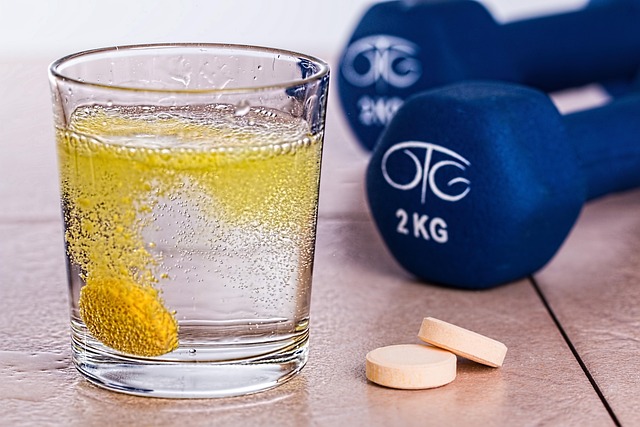Healthy Ageing: Supplements and Nutrition for NZ Men 50+
Practical nutrition and supplement guidance for men over 50 in New Zealand to maintain energy, muscle mass, bone health and heart function. Focus on evidence-backed supplements such as vitamin D, omega-3, B12, magnesium and probiotics alongside higher protein, more fibre, nutrient-dense wholefoods, gut health and hydration. Get personalised advice from your GP or pharmacist and check blood levels before starting supplements.

As men enter their fifties and beyond, their bodies undergo significant physiological changes that require targeted nutritional support. Hormonal shifts, decreased muscle mass, and changing metabolic needs create new health priorities that can be effectively addressed through informed supplement choices and strategic nutrition planning.
Top Supplements for Men Over 50 in New Zealand
Vitamin D stands as perhaps the most crucial supplement for New Zealand men over 50, particularly given the country’s latitude and limited winter sunlight. Research indicates that adequate vitamin D levels support bone health, immune function, and may help maintain testosterone levels. Omega-3 fatty acids, typically sourced from fish oil, provide essential support for cardiovascular health and cognitive function.
Magnesium supplementation addresses common deficiencies that can affect sleep quality, muscle function, and blood pressure regulation. B-complex vitamins become increasingly important as absorption decreases with age, supporting energy metabolism and nervous system health. Zinc supplementation may help maintain healthy testosterone levels and support immune function.
Nutrition and Protein Strategies to Preserve Muscle
Protein requirements increase significantly for men over 50 to combat age-related muscle loss, known as sarcopenia. Aim for 1.2 to 1.6 grams of protein per kilogram of body weight daily, distributed across meals to optimize muscle protein synthesis. High-quality protein sources include lean meats, fish, eggs, dairy products, and plant-based options like legumes and quinoa.
Timing protein intake around physical activity enhances muscle preservation and growth. Consuming 20-30 grams of protein within two hours post-exercise maximizes recovery and adaptation. Leucine-rich foods such as chicken, fish, and dairy products are particularly effective at stimulating muscle protein synthesis.
Heart Bone Brain and Prostate Supportive Nutrients
Cardiovascular health requires focused attention to omega-3 fatty acids, CoQ10, and magnesium. These nutrients support heart rhythm, reduce inflammation, and may help maintain healthy cholesterol levels. Bone health depends on adequate calcium, vitamin D, and vitamin K2 working synergistically to maintain bone density and strength.
Brain health benefits from antioxidants like vitamin E, omega-3 DHA, and B-vitamins that support cognitive function and may reduce age-related decline. Prostate health can be supported through lycopene from tomatoes, selenium, and saw palmetto, though evidence varies for different supplements.
Practical Lifestyle Tips Hydration Sleep and Exercise
Hydration needs often increase with age as kidney function changes and thirst sensation diminishes. Aim for 8-10 glasses of water daily, adjusting for activity level and climate. Monitor urine color as a simple hydration indicator – pale yellow suggests adequate hydration.
Sleep quality directly impacts hormone production, immune function, and recovery. Establish consistent sleep schedules, limit screen time before bed, and consider magnesium supplementation if sleep issues persist. Create a cool, dark sleeping environment to support natural melatonin production.
Regular exercise combining resistance training and cardiovascular activity supports muscle preservation, bone health, and mental wellbeing. Aim for at least 150 minutes of moderate-intensity exercise weekly, including two or more strength training sessions.
Tests Safety Dosing and Talking to Your GP
Regular health monitoring becomes crucial for men over 50. Annual blood tests should include vitamin D levels, B12, iron studies, lipid profiles, and prostate-specific antigen (PSA) screening. These tests help identify deficiencies and guide supplementation strategies.
Supplement safety requires careful consideration of interactions with medications and existing health conditions. Start with lower doses and gradually increase as tolerated. Fat-soluble vitamins (A, D, E, K) require particular caution as they can accumulate in body tissues.
Discussing supplement plans with your GP ensures safety and appropriateness for your individual health profile. Bring a list of current medications and supplements to appointments, as interactions can affect both efficacy and safety. Your doctor can recommend specific tests to monitor supplement effectiveness and adjust dosing accordingly.
Healthy ageing for New Zealand men over 50 requires a comprehensive approach combining targeted supplementation, strategic nutrition, and lifestyle modifications. While individual needs vary, focusing on protein adequacy, essential vitamins and minerals, and regular health monitoring provides a solid foundation for maintaining vitality and wellbeing throughout the later decades of life.
This article is for informational purposes only and should not be considered medical advice. Please consult a qualified healthcare professional for personalized guidance and treatment.




